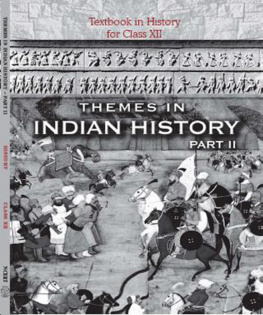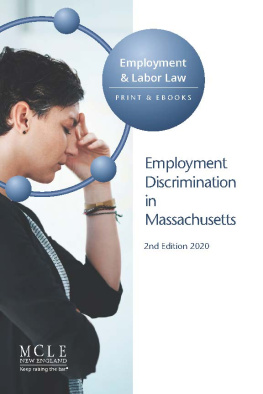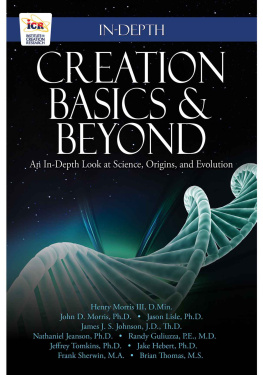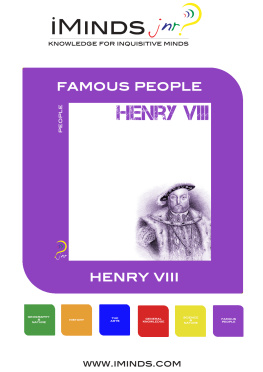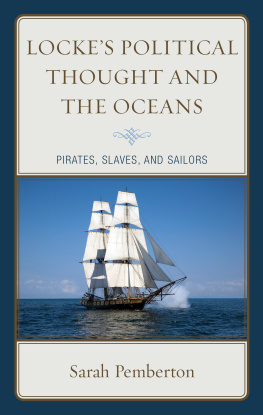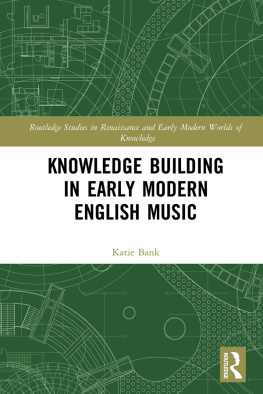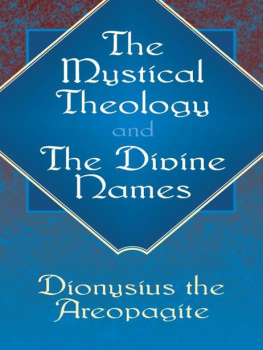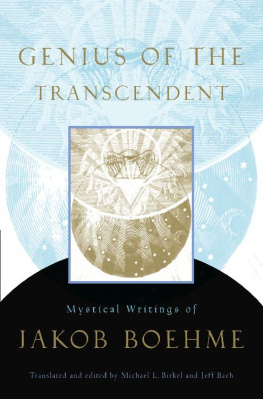INTRODUCTION
Table of Contents
FROM the end of the thirteenth to the beginning of the fifteenth century may be called the golden age of mystical literature in the vernacular. In Germany, we find Mechthild of Magdeburg (d. 1277), Meister Eckhart (d. 1327), Johannes Tauler (d. 1361), and Heinrich Suso (d. 1365); in Flanders, Jan Ruysbroek (d. 1381); in Italy, Dante Alighieri himself (d. 1321), Jacopone da Todi (d. 1306), St. Catherine of Siena (d. 1380), and many lesser writers who strove, in prose or in poetry, to express the hidden things of the spirit, the secret intercourse of the human soul with the Divine, no longer in the official Latin of the Church, but in the language of their own people, "a man's own vernacular," which "is nearest to him, inasmuch as it is most closely united to him."[1] In England, the great names of Richard Rolle, the Hermit of Hampole (d. 1349), of Walter Hilton (d. 1396), and of Mother Juliana of Norwich, whose Revelation of Divine Love professedly date from 1373, speak for themselves.
The seven tracts or treatises before us were published in 1521 in a little quarto volume: "Imprynted at London in Poules chyrchyarde at the sygne of the Trynyte, by Henry Pepwell. In the yere of our lorde God, M.CCCCC.XXI., the xvi. daye of Nouembre." They may, somewhat loosely speaking, be regarded as belonging to the fourteenth century, though the first and longest of them professes to be but a translation of the work of the great Augustinian mystic of an earlier age.
St. Bernard, Richard of St. Victor, and St. Bonaventuraall three very familiar figures to students of Dante's Paradisoare the chief influences in the story of English mysticism. And, through the writings of his latter-day followers, Richard Rolle, Walter Hilton, and the anonymous author of the Divine Cloud of Unknowing, Richard of St. Victor is, perhaps, the most important of the three.
Himself either a Scot or an Irishman by birth, Richard entered the famous abbey of St. Victor, a house of Augustinian canons near Paris, some time before 1140, where he became the chief pupil of the great mystical doctor and theologian whom the later Middle Ages regarded as a second Augustine, Hugh of St. Victor. After Hugh's death (1141), Richard succeeded to his influence as a teacher, and completed his work in creating the mystical theology of the Church. His masterpiece, De Gratia Contemplationis, known also as Benjamin Major, in five books, is a work of marvellous spiritual insight, unction, and eloquence, upon which Dante afterwards based the whole mystical psychology of the Paradiso.2 In it Richard shows how the soul passes upward through the six steps of contemplationin imagination, in reason, in understandinggradually discarding all sensible objects of thought; until, in the sixth stage, it contemplates what is above reason, and seems to be beside reason, or even contrary to reason. He teaches that there are three qualities of contemplation, according to its intensity: mentis dilatatio, an enlargement of the soul's vision without exceeding the bounds of human activity; mentis sublevatio, elevation of mind, in which the intellect, divinely illumined, transcends the measure of humanity, and beholds the things above itself, but does not entirely lose self-consciousness; and mentis alienatio, or ecstasy, in which all memory of the present leaves the mind, and it passes into a state of divine transfiguration, in which the soul gazes upon truth without any veils of creatures, not in a mirror darkly, but in its pure simplicity. This master of the spiritual life died in 1173. Amongst the glowing souls of the great doctors and theologians in the fourth heaven, St. Thomas Aquinas bids Dante mark the ardent spirit of "Richard who in contemplation was more than man."[3]
Benjamin, for Richard, is the type of contemplation, in accordance with the Vulgate version of Psalm lxvii.: Ibi Benjamin adolescentulus in mentis excessu: "There is Benjamin, a youth, in ecstasy of mind"where the English Bible reads: "Little Benjamin their ruler."[4] At the birth of Benjamin, his mother Rachel dies: "For, when the mind of man is rapt above itself, it surpasseth all the limits of human reasoning. Elevated above itself and rapt in ecstasy, it beholdeth things in the divine light at which all human reason succumbs. What, then, is the death of Rachel, save the failing of reason?"[5]
The treatise here printed under the title Benjamin is based upon a smaller work of Richard's, a kind of introduction to the Benjamin Major, entitled: Benjamin Minor; or: De Praeparatione animi ad Contemplationem. It is a paraphrase of certain portions of this work, with a few additions, and large omissions. Among the portions omitted are the two passages that, almost alone among Richard's writings, are known to the general readeror, at least, to people who do not claim to be specialists in mediaeval theology. In the one, he speaks of knowledge of self as the Holy Hill, the Mountain of the Lord:
"If the mind would fain ascend to the height of science, let its first and principal study be to know itself. Full knowledge of the rational spirit is a great and high mountain. This mountain transcends all the peaks of all mundane sciences, and looks down upon all the philosophy and all the science of the world from on high. Could Aristotle, could Plato, could the great band of philosophers ever attain to it?"[6]
In the other, still adhering to his image of the mountain of self-knowledge, he makes his famous appeal to the Bible, as the supreme test of truth, the only sure guard that the mystic has against being deluded in his lofty speculations:
"Even if you think that you have been taken up into that high mountain apart, even if you think that you see Christ transfigured, do not be too ready to believe anything you see in Him or hear from Him, unless Moses and Elias run to meet Him. I hold all truth in suspicion which the authority of the Scriptures does not confirm, nor do I receive Christ in His clarification unless Moses and Elias are talking with Him."[7]
On the other hand, the beautiful passage with which the version closes, so typical of the burning love of Christ, shown in devotion to the name of Jesus, which glows through all the writings of the school of the Hermit of Hampole, is an addition of the translator:
"And therefore, what so thou be that covetest to come to contemplation of God, that is to say, to bring forth such a child that men clepen in the story Benjamin (that is to say, sight of God), then shalt thou use thee in this manner. Thou shalt call together thy thoughts and thy desires, and make thee of them a church, and learn thee therein for to love only this good word Jesu, so that all thy desires and all thy thoughts are only set for to love Jesu, and that unceasingly as it may be here; so that thou fulfil that is said in the psalm: 'Lord, I shall bless Thee in churches'; that is, in thoughts and desires of the love of Jesu. And then, in this church of thoughts and desires, and in this onehead of studies and of wills, look that all thy thoughts, and all thy desires, and all thy studies, and all thy wills be only set in the love and the praising of this Lord Jesu, without forgetting, as far forth as thou mayst by grace, and as thy frailty will suffer; evermore meeking thee to prayer and to counsel, patiently abiding the will of our Lord, unto the time that thy mind be ravished above itself, to be fed with the fair food of angels in the beholding of God and ghostly things; so that it be fulfilled in thee that is written in the psalm: Ibi Benjamin adolescentulus in mentis excessu; that is: 'There is Benjamin, the young child, in ravishing of mind."'[8]






